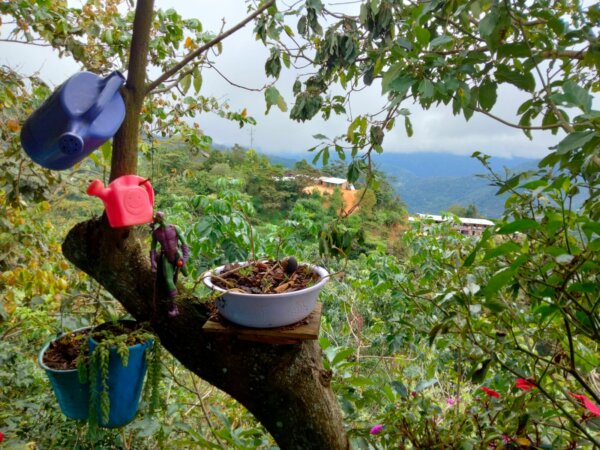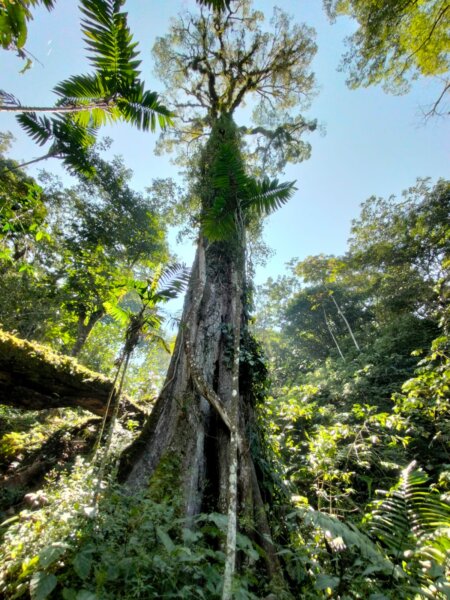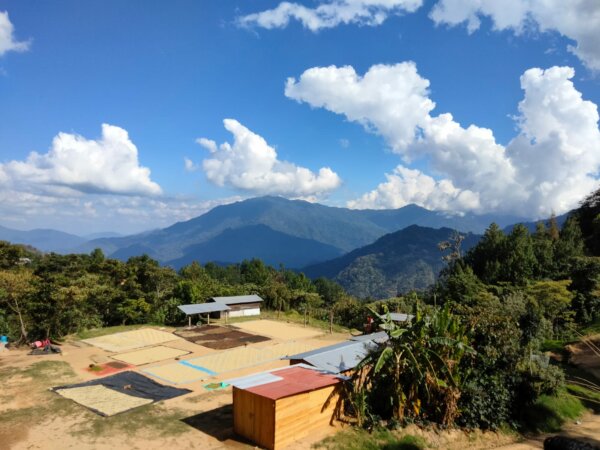About La Concordia


 The community of Nuevo Paraiso is located in the district of La Concordia in the state of Chiapas, this community is relatively close to large cities (it only takes a 4 hour trip to get to the Chiapas airport) but despite its closeness to large cities, this community has a unique characteristic that differentiates it from other communities, which is that the majority of its coffee producers are women, strong and brave women.
The community of Nuevo Paraiso is located in the district of La Concordia in the state of Chiapas, this community is relatively close to large cities (it only takes a 4 hour trip to get to the Chiapas airport) but despite its closeness to large cities, this community has a unique characteristic that differentiates it from other communities, which is that the majority of its coffee producers are women, strong and brave women.
In recent decades, Nuevo Paraiso has suffered a massive migration of its male inhabitants to other countries in search of better job opportunities, leaving their wives and children on the farms. Due to this, it is very common today to see women managing the farms and raising their children alone, this at first was a difficult challenge for the women of the community to overcome but soon became clear that this was a task that they were going to be able to handle perfectly and even excel at.
Nuevo Paraiso is characterized by its mountainous and high but moderately flat terrain. Due to this, most farms have access to the roads. Producers in the area usually transport their coffees in their own cars or hire communal trucks to transport the coffee collectively, as a third option, they can call the collection centers (there is a good telephone signal in the area) to send a collection unit.
Producers in the area usually have farms with sizes between 1 and 2 hectares, although we can find farms of 5 or more hectares in size. In the area, ice-cream bean trees are usually used as shade and fertilization is carried out using organic compost of coffee pulp.
Nuevo Paraiso is located between 1400 and 1600 meters above sea level, and the predominant varieties in the area are Bourbon, Marsellesa and Costa Rica. The producers’ farms are usually located next to the houses, so the journey that the producers have to take to work every day is not very long, likewise, producers usually have their washing and drying stations in their homes, fermentation is carried out for approximately 40 hours in concrete tanks and drying is carefully carried out between 12 and 15 days in patios and raised beds, both processes depend totally on the weather, so in the case of rainy weather these processes can be lengthened, and in the case of hot weather the processes can be shortened.
It is always a pleasure to visit and speak with the producers of this community and recognize the hard work they do each harvest despite all the adversities they face every day, and La Concordia lot is a clear example of this magnificent work.




 The community of Nuevo Paraiso is located in the district of La Concordia in the state of Chiapas, this community is relatively close to large cities (it only takes a 4 hour trip to get to the Chiapas airport) but despite its closeness to large cities, this community has a unique characteristic that differentiates it from other communities, which is that the majority of its coffee producers are women, strong and brave women.
The community of Nuevo Paraiso is located in the district of La Concordia in the state of Chiapas, this community is relatively close to large cities (it only takes a 4 hour trip to get to the Chiapas airport) but despite its closeness to large cities, this community has a unique characteristic that differentiates it from other communities, which is that the majority of its coffee producers are women, strong and brave women.

